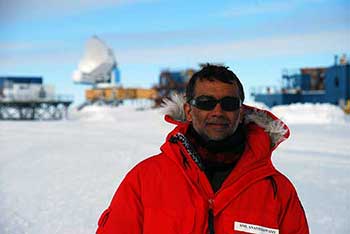Why I Write
In his book The First Three Minutes, particle physicist and Nobel Laureate Steven Weinberg wrote, "The more the universe seems comprehensible, the more it also seems pointless. ... The effort to understand the universe is one of the very few things that lifts a human life a little above the level of farce, and gives it some of the grace of tragedy."
Physicists are often confronted by the apparent meaninglessness of the universe, or at least the lack of any meaning that can be discerned by science. In this context, Weinberg argued that science itself gave meaning to one's life. In an interview with PBS, Weinberg would add, "There is a point that we can give the universe by the way we live, by loving each other, by discovering things about nature, by creating works of art."
Ever since I started writing, I have held Weinberg's views close to my heart. He could have been speaking about writing. To write well you have to be attentive, to both external and internal worlds, examine your reactions to them, and express your thoughts clearly. Writing lets you explore precision and beauty in words, sentences, and paragraphs. It imbues a writer's life with meaning. All writers know this, even though this facet of their work is often lost in the quotidian struggle to earn a living, let alone "succeed" as a writer.
Writing about science combines the joys of these two ways of paying attention to nature. It also allows the writer to participate in the process and progress of science, sometimes superficially, but often to a much greater degree than is afforded by reading about it.
First, you have to understand the science. This can be hard, but it has its rewards. There's the thrill of talking to scientists, getting a glimpse of the workings of their minds as they wander the edges of the universe we inhabit or probe the recesses of the very consciousness that begets questions. It's a thrill by proxy, but in lieu of being a scientist, it's the next best thing.
Then, there is the challenge of communicating this thrill to the reader—and this brings the writer to the fore. Science demands precision, and so does writing about it. It requires being diligent about the craft and playing by the rules. But once you have paid your dues to the gods of craft—no small feat in itself—you can think about creating art. "Most scientists are motivated at least in part by beauty—you should be, too," wrote Robert Kunzig, in A Field Guide for Science Writers.
For the entire story, published as part of the US National Writing Project, follow this link.
Anil Ananthaswamy is a journalist at New Scientist, book author and a writing consultant at NCBS. You can read his blog, The Edge of Physics, by following this link.

Comments
Post new comment